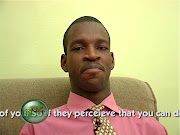Wednesday, March 25, 2009
Doing Something Foolish?
Has anyone ever called you a fool? If so, what had you done? And how did you feel about it?
"Foolish?"
Insulted?
Discouraged?
Annoyed?
Whatever feelings you had they must have been somewhat bad.
When your actions attract negative feedback from those around you or watching you it is natural for you to feel bad about yourself, reconsider your decisions and change your course of action. While this is probably the most logical response to give to any such negative feedback, unfortunately, it is not always necessarily the wisest one. These negative feelings that you have about yourself and the reverse of your decisions and actions only serve your best interests if the actions that you took cropped up from a wrong decision.
Nevertheless, this is not always the case. At times the people around you or watching you call you a fool in error: they can call you a fool because they do not understand your decisions and actions, do not see where you are going nor do they perceive any reward from what you are doing. But you will be doing the right thing in a way that seems foolish to those around you or watching you.
When you are doing the right thing in a way that seems foolish to those around you or watching simply pay no attention to those that call you foolish and continue with what you are doing. Maintain your focus and do not allow those that call you foolish to derail you from what you are doing. For I have heard of many people who created their pathway to success by doing things that seemed foolish to those around them or watching them.
What can stop you from creating your own pathway to success by doing things that are or may seem foolish to those around you and those watching you?
Be inspired.
Monday, March 23, 2009
I gave them a piece of my mind
Sometimes the wrong thing to do is the right thing to do.
Every now and then you have to stand up for your rights: You have to say NO to discrimination.
Those times usually appear at your doorstep when you least expect them. Like last Friday afternoon on my way home. I happened to among a group of people who were looking for a ride home at the roadside when a van (the local form of public transport) swung in from the junction and pulled over to look for passengers. One of the man in the van called out, "Mabvuku, Tafara," to invite us to it. The place at which the van stopped was a few meters away from us so we walked to it. When my turn came to get into the van a man in the front passenger seat said to me, "It's fifty cents. Do you have money?"
"Yes," I replied. (Though being asked this question before being accepted into a ride offends me, I do not blame the transport operator entirely for wanting to know my financial position before I enter into their van. I am aware that some of my disabled brothers and sisters give transport operators a challenge by refusing to pay their fares on the basis that they are disabled or because they have a letter that warrants them free rides when using public transport. Since transport operators have the right to refuse anyone any such privileges, I find it only fair that they ask their potential clients whether they are in a position to pay or not. However, they shouldn't push it too hard.)
I thought that this was going to end be the end of our conversation but obviously I was wrong.
"Where are you going," the man demanded of me. I told him my destination but before I could finish what I was saying he snarled back at me, "We are not going your way."
"No, I will pay you your fares," I answered back.
"We are not going your way."
It became apparent that this man did not want me in the van for some unknown reason. But I was determined to go home – in this van.
"Do not let him in," the man said to his colleague who was standing at the van's door and directing passengers to free seats.
But it was already too late. I was already in. And about to sit down. The man at the door grabbed me but I grabbed on to the hand of the passenger who was already inside the van and sat down next to her. I found a seat in the first row that is right behind the driver's seat. That is also close to the door.
"Get him out of here," demanded the driver.
"You shouldn't have allowed him in," the first man said. "We are not going to Epworth."
Who wanted to go to Epworth? This man was making up stories. I was going to Hillside and would drop at a junction that is along the route to Mabvuku.
"Please, we are not going your way," the man at the door tried to plead with me to exit the vehicle as he slightly tagged me, trying to get me out of my seat.
"No, I will pay you your fares," I answered back.
"Get him out of here," demanded the driver again and again.
"I am going to drag you out of this vehicle," the man at the door said as he began to pull me.
"No, I am not leaving this vehicle," I retorted in direct defiance of the three men's commands.
"We do not want any trouble. We are not going to Epworth. Get him out of here," demanded the man in the front passenger seat.
"Get out of here. We do not want any trouble with you. We know you have the money to pay but we are not going your way," retorted the driver.
"No, I am disembarking from this vehicle," I responded to all their demands. "I am going to Hillside. This is discrimination!" Apparently, I was also working hard to resist the tug of the man that was at the door who wanted to drag me out of the vehicle.
As the commotion increased a crowd gathered at the door of the van to see what was taking place. The man in the front passenger seat told the crowd that they wanted me to disembark from the vehicle because they were not going my way. A man from the crowd came to talk to me. He said that he understood that I was going to pay my fares but the vehicle was not going where I was going. I told him I wasn't going to Epworth either. "Then, where are you going?"
"Hillside," I replied, "I drop along the way."
"I know him. He drops along the way," spoke up another passenger who had just entered the vehicle and was about to take up his seat.
However, all this seemed to fall on deaf ears. The three men kept on insisting that the vehicle was not headed towards my direction and that I should disembark from the vehicle.
I refused.
The man who had come in to speak to me from the crowd withdrew and gave the man at the door the reassurance that I was in the right van and that I was going to pay my fares. However, he took it with a pinch of salt.
All this while the driver was beaming, "Get him out of here. He will cause us trouble. We are not going to where he is going."
An older man entered the vehicle and when he saw me he said, "I know this guy. He drops along the way."
Now every seat in the vehicle was occupied. They had to leave. I was still inside but they wanted to leave me behind.
"You got your money," the driver asked as he turned to look at me.
"Yes!"
"Take it out," he said. "Take this guy's fare," he instructed the man who had been standing at the door. The vehicle was now in motion and they wanted me to collect my fares before we went anywhere far or leave me behind in the event that I could not pay.
The last time I was insulted in this way I boldly told the man who was collecting the fares, "Because you insulted me and thought that I wasn't going to pay you, truly I am not going to pay you. I am doing this so that the next time you see me, you will remember this incident and not discriminate against me." Indeed, I enjoyed a free ride home on that day. Nevertheless, I saw that there was no room for such talk in my present situation so I dug into the pocket of my bag and drew out of it a coin which I pressed hard into the man's palm. "There," I said, "I told you I would pay you."
"You sure are trouble. The next time we see you we won't give you a ride," threatened the man in the font passenger seat. He went on to pass some derogatory statements that agitated me so I snarled back. I told them that the three of them were stupid and that their discriminatory behaviour was unacceptable. I told them that they should treat disabled as any other human being. I was restrained by the older man who had vouched for me otherwise I was ready to pick on them until we got to my stop.
I do not usually handle such issues this way. I usually address the matter at hand and quit, especially when it is a minor misunderstanding or misjudgment and the offender quickly acknowledges their offense. But the way the current incident played out proved to be a case of outright discrimination and I think I did what I had to do: I gave them a piece of my mind.
I felt a little bad afterwards but I quickly got over it. That was the best way to handle the issue at the time I believe. Even though I wish that there was a better way.
Discrimination is a part of our everyday lives that we cannot ignore. The reason that I relate this incident to you is not so that you may feel sorry for me but rather that I may find opportunity to ask you what are you doing about the discrimination that is part of your life – be it discrimination that is being perpetrated against you or the discriminatory behaviour that you are perpetrating against someone else.
The basis upon which any person may be discriminated against are diverse – gender, race, colour, ethnic group, religion, education and so on – and the reparations are invariably negative – job loss, limited opportunity, physical and emotional hurts, among many more.
Even if there is no discrimination that is being perpetrated against you and you are not perpetrating any discriminatory against anyone, I am sure you know someone who is being discriminated against by someone else. I am sure you are in a position to help them.
Let's do something about it.
Subscribe to:
Posts (Atom)





